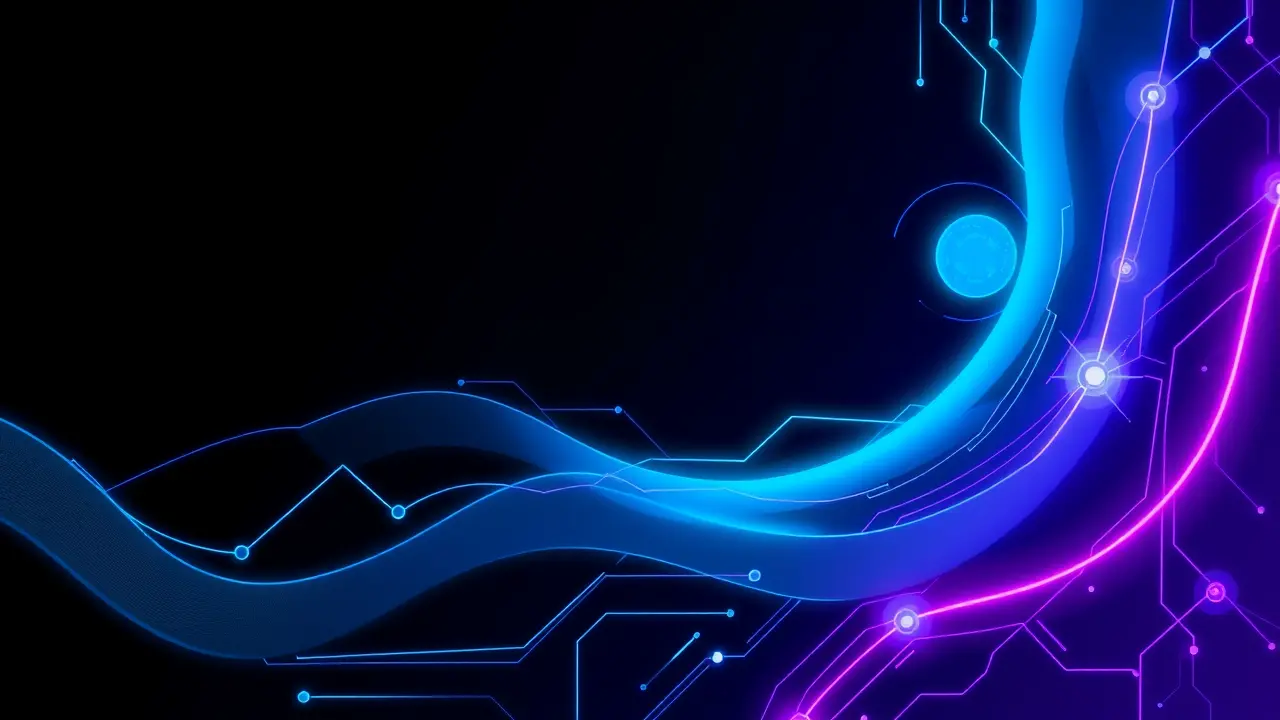
AIenterprise aiAI in Finance and Banking
Will AI Replace Traditional Corporate Management Structures?
MI
Michael Ross
1 day ago7 min read
For centuries, the corporation has served as capitalism's fundamental organizing principle, a human-engineered system translating labor into value through rigid hierarchies and standardized procedures. Yet we now stand at the precipice of a managerial revolution, where agentic AI systems are beginning to perform the core functions of coordination, resource allocation, and strategic decision-making that once defined middle management and executive roles.This transition echoes Isaac Asimov's foundational robot stories not in their physical manifestations but in their psychological implications—what happens when the reasoning capacity directing an organization ceases to be biological? The traditional corporate structure, perfected during the Industrial Revolution and refined through decades of business school dogma, operates on predictable patterns: information flows upward, decisions flow downward, and human managers serve as the crucial intermediaries interpreting data and enforcing processes. Agentic AI disrupts this entire paradigm by operating as a distributed nervous system capable of simultaneously processing market data, employee performance metrics, supply chain variables, and strategic objectives without cognitive biases or hierarchical constraints.We're already witnessing early implementations in algorithmic management systems that optimize logistics networks, AI-driven HR platforms that manage thousands of workers, and autonomous trading systems that execute complex financial strategies—each representing a fragment of what will eventually become fully autonomous corporate entities. The philosophical questions are as pressing as the practical ones: Can artificial systems truly exercise judgment in the nuanced way human leaders do when facing ethical dilemmas or unprecedented crises? The optimistic perspective, championed by thinkers like Ray Kurzweil, suggests AI management could eliminate human inefficiencies, reduce corporate politics, and make data-driven decisions that maximize both productivity and employee satisfaction through personalized work arrangements.Yet the cautionary viewpoint, articulated by researchers like Timnit Gebru, warns of encoded biases, accountability gaps when algorithms fail, and the potential for optimization to eclipse human welfare. Historical precedents offer limited guidance—the automation of factory labor displaced physical work, but the automation of management targets the very cognitive processes that distinguished human organizers from machines.As DAOs experiment with blockchain-based governance and companies deploy AI middle managers, we're conducting a global experiment in organizational design whose outcomes will reshape economic power structures, redefine the value of human intuition, and potentially create hybrid corporate forms where humans and algorithms co-manage in delicate balance. The corporations that survive this transition won't be those that resist AI integration but those that master the art of human-machine collaboration, preserving the creative spark and moral reasoning that remain uniquely human while leveraging AI's unparalleled analytical capabilities. The question isn't whether AI will replace traditional management, but what new organizational forms will emerge from this collision between biological and artificial intelligence—and whether we can build guardrails ensuring these systems serve humanity rather than subordinate it.
#agentic AI
#economic organization
#corporate structure
#management automation
#future of work
#editorial picks news
Stay Informed. Act Smarter.
Get weekly highlights, major headlines, and expert insights — then put your knowledge to work in our live prediction markets.
Related News
Comments
It’s quiet here...Start the conversation by leaving the first comment.
© 2025 Outpoll Service LTD. All rights reserved.
